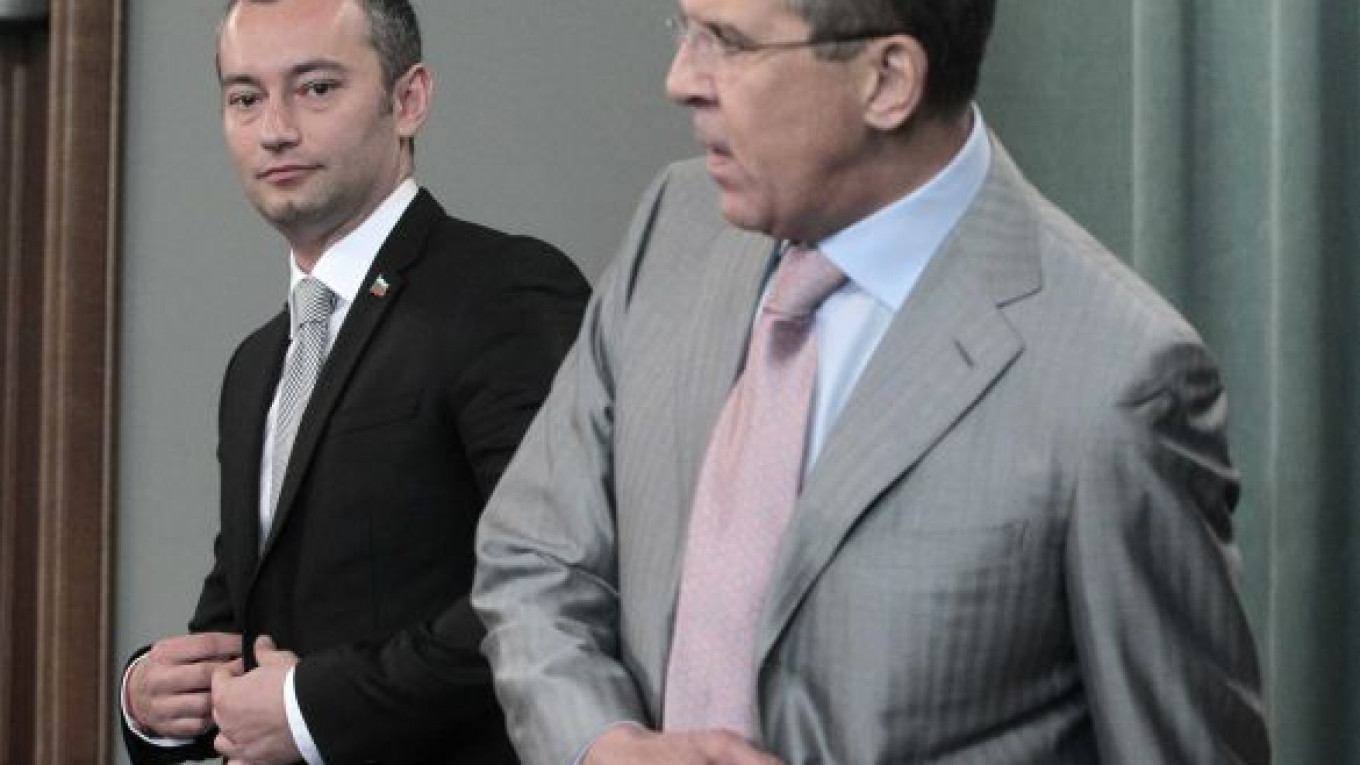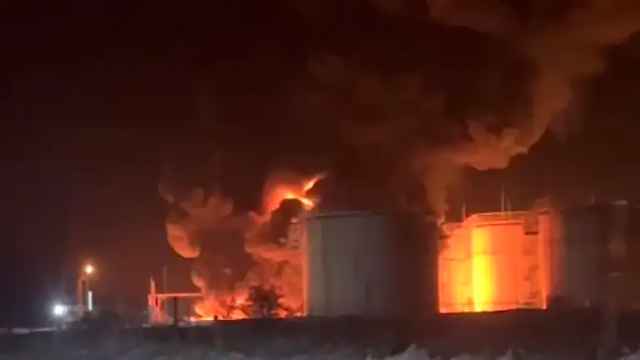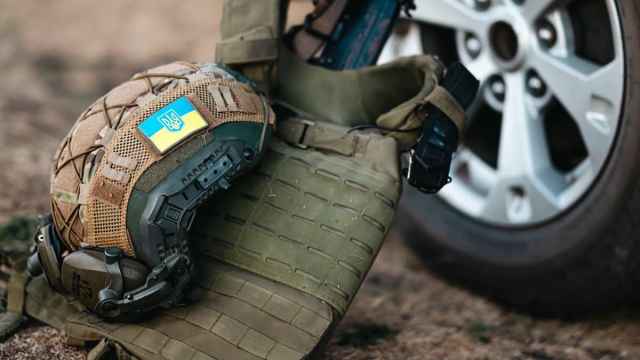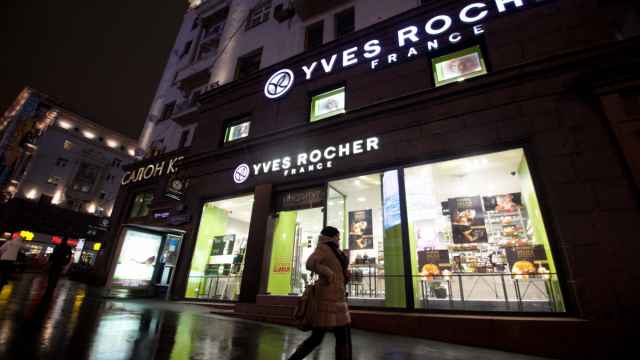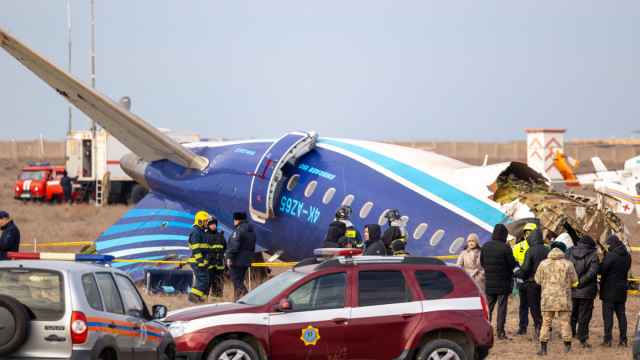World powers should offer to ease sanctions to gain Iran's cooperation in resolving the dispute over the country's nuclear program, Foreign Minister Sergei Lavrov said.
Lavrov, speaking in an interview, also said U.S. President Barack Obama might make his second visit to Russia by the end of this year.
Talks between Iran and the five permanent members of the United Nations Security Council plus Germany have stalled since January, and Russia believes that incentives are needed to kick-start the process, Lavrov said Wednesday.
"We have to show to Iran that if it cooperates, if it answers satisfactorily the IAEA demands, then it should see the light at the end of the tunnel," Lavrov said, referring to the International Atomic Energy Agency, the UN's nuclear watchdog.
The Persian Gulf state in mid-2010 came under a fourth set of UN sanctions, which Russia supported. The United States and European Union later imposed tougher unilateral measures. Russia won't support new sanctions against Iran, Lavrov said.
"It's a process that can only be successful if we count not on new sanctions and threats, but on negotiations," he said.
The IAEA has been probing Iran's nuclear work since 2003, when it was revealed that the government had hidden atomic research for two decades. The United States has accused Iran of seeking to build a nuclear weapon, while Iran says its program is for civilian energy production.
Russia built Iran's first nuclear power plant, in Bushehr, and plans to start full operations at the facility "very soon," state nuclear holding Rosatom said May 26.
If Iran agrees to resume tougher IAEA inspections, the EU and United States should pledge not to introduce any new, unilateral sanctions, Lavrov said.
"And then when Iran does something else, expanding access for the IAEA to the places where the agency wants to go, then we suspend sanctions," he said.
Meanwhile, Lavrov said he would travel to Washington at the invitation of Secretary of State Hillary Clinton to discuss preparations for a visit by Obama to Russia. President Dmitry Medvedev invited Obama to visit last June when the two leaders met in the United States.
"We hope very much that before the end of this year, this visit will take place," Lavrov said.
A "whole range of bilateral, regional and international issues" will be on the agenda, he said.
Obama first visited Russia as president in July 2009, five months after Vice President Joe Biden announced Washington's plans to "reset" strained relations with Moscow.
The two leaders met last week in Deauville, France, at a summit of the Group of Eight nations. Obama said after the meeting that he and Medvedev have built an "outstanding relationship," while the Russian president said he was disappointed with the U.S. response on missile defense.
The two men agreed to work together to maintain a "strategic balance," Obama said.
A Message from The Moscow Times:
Dear readers,
We are facing unprecedented challenges. Russia's Prosecutor General's Office has designated The Moscow Times as an "undesirable" organization, criminalizing our work and putting our staff at risk of prosecution. This follows our earlier unjust labeling as a "foreign agent."
These actions are direct attempts to silence independent journalism in Russia. The authorities claim our work "discredits the decisions of the Russian leadership." We see things differently: we strive to provide accurate, unbiased reporting on Russia.
We, the journalists of The Moscow Times, refuse to be silenced. But to continue our work, we need your help.
Your support, no matter how small, makes a world of difference. If you can, please support us monthly starting from just $2. It's quick to set up, and every contribution makes a significant impact.
By supporting The Moscow Times, you're defending open, independent journalism in the face of repression. Thank you for standing with us.
Remind me later.


